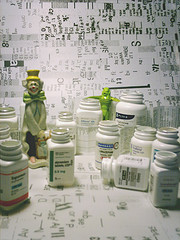Do Prescription Drug Coupons Lead To Higher Insurance Rates For Everyone?
In the report, published in the New England Journal of Medicine, researchers looked at coupons for 374 brand-name prescription drugs, 75% of which were for chronic conditions, and 62% of which had less-expensive equivalents already available on the market.
COST TO THE COUPON-USER
Much like Consumer Reports found in 2012, these researchers express concern about the long-term costs of these coupons to the user. Yes, the coupon might save the patient money right now, but if he or she stays on that brand-name drug instead of switching to a generic or lower-cost equivalent, any initial savings goes out the window.
“Once a coupon program ends, patients with chronic diseases face copayments for these brand-name medications that are higher than those for generic alternatives,” reads the report. “By that point, however, patients may have developed loyalty to the particular brand or may be skeptical about switching away from a medication that they perceive as effective — or they may not even be aware of alternative therapies.”
By that same token, doctors are not always pushing their patients to switch to lower-cost alternatives “either because of clinical inertia or simply because they are unaware of the cost implications of their prescription choices.”
INCREASED COSTS TO THE REST OF US
The patient may be paying significantly less while the coupon is in effect, but the drug companies aren’t giving these medications away. The patient’s insurance company is still paying a substantial amount of money for each prescription filled.
“The more that patients use drug coupons to obtain brand-name medications when lower-cost alternatives are available,” reads the report, “the more expenses will rise for their insurers. A predictable response from the insurers would be to raise coverage rates for all patients.”
With many patients, especially those with chronic conditions reluctant to switch brands of medication, the researchers task the nation’s doctors with making sure their patients understand the benefits and pitfalls associated with prescription drug coupons:
“Physicians need to talk to their commercially insured patients about the implications of drug-coupon use and make sure that their inclination to reduce short-term out-of-pocket spending doesn’t come at the cost of higher long-term expenses for themselves and society.”
Prescription-Drug Coupons — No Such Thing as a Free Lunch [NEJM]
Want more consumer news? Visit our parent organization, Consumer Reports, for the latest on scams, recalls, and other consumer issues.


